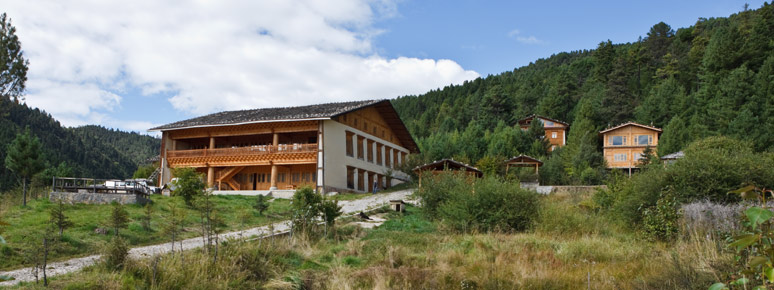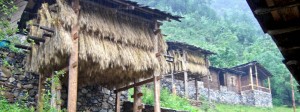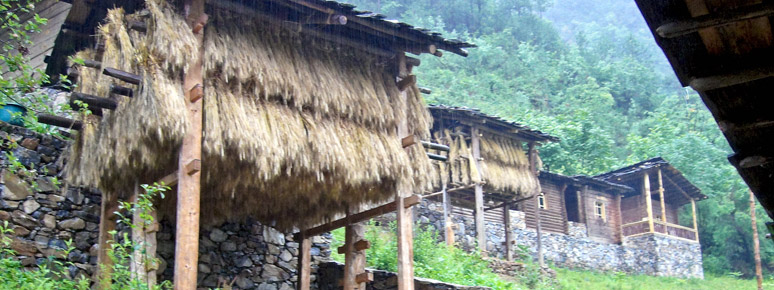Written by Suolang Dongcuo (Master’s in Environmental Policy Candidate 2015)
After finishing the first year of my master’s degree at Bard College’s Center for Environmental Policy, I decided to go back to Tibet where my knowledge is mostly needed. After a long and tedious search and application process, I finally decided to do my internship with the China Exploration and Research Society (CERS) here in Shangri-la. Shangri-la, also called Zhongdian, is located in the Deqin Tibetan Autonomous Region of Yunnan Province. Like its name, Shangri-la is one of the most beautiful places in Tibet. Its diverse cultural traditions and natural landscapes are simply breathtaking.

What brought me to Shangri-la was not only the historical significance of this region in Tibetan history, which I know very little about, but also because of the precious internship opportunity I was offered by CERS. I was overwhelmingly excited to learn more about Shangri-la, and most importantly I was inspired by CERS’s commitment to conserving nature and culture in a sensitive and equitable manner. I strongly believe nature and culture are the last treasures left in Tibet and are worth all the efforts to protect. Therefore, my long-term career goal is to make an effort in conserving the plateau environment and the traditions of its people. CERS’s commitment is exactly where my interest lies.
China Exploration and Research Society
CERS was founded in 1986 by Wong How Man, who is a great explorer. Mr Wong sees the importance of exploration, research, conservation and education in today’s changing worlds. He especially finds the values of conserving minority culture and indigenous knowledge to reinforce our cultural and environmental understanding. CERS draws individuals, such as Dr. Bill Bleisch, from diverse backgrounds with various skill-sets. This allows CERS to operate effectively and is continually influencing other organizations in the same arena. CERS’s vision is to become a model for equitable conservation and complement sustainable development.
Over the last few decades, CERS implemented various projects in China and other countries to protect environment and preserve culture. This is done through education, advocacy and research. For example, CERS’s projects in Tibet include restoring and repairing nunneries, bringing western dairy experts to experiment and teach the techniques of yak cheese production to local Tibetans, and drafting architectural drawings and documentation of the history and current status of 18 monasteries throughout Tibetan areas. CERS’s other projects include protecting Tibetan Antelope, Black-necked crane, Wild Yak and the Tibetan mastiff.
I am involved with a few components of CERS’s work. Every summer, CERS brings in high school and college students from around the world and provides them training. The objectives of this training are to enhance the rural and urban bond, increase students’ understanding of indigenous culture and, most importantly, saving urban youth from nature deficit disorder. During this training, students have the opportunity to explore rural villages, talk to local people and interact with local kids. This is a great eye-opening and interaction opportunity not only for the urban kids, but also the local kids.
This year’s CERS summer’s education program involves multiple locations. The first location is based in Diqing Prefecture in Yunnan with two major sites. The second location is in Hongshui Village of Hainan Island. Students and interns spend the first week at CERS Zhongdian Center and Lisu Minority Cultural village Site and then we transition to CERS Li Minority Cultural Village in Hongshui village in Hainan for the second week. CERS hopes that this program will allow students the opportunity to do the following:
- Become familiar with the context of the project region, so that they can put their experience into the bigger picture,
- Understand and embrace the spirit of exploration,
- Appreciate diversity and adaptation, and conservation challenges for wildlife,
- Improve observation skills and mindfulness by keeping a journal each day, and
- Appreciate cultural heritage and its preservation.

I was lucky enough to be the assistant for the CERS’s education coordinator. During the program, I helped our education coordinator and other CERS members in event planning, group organization and other needs. Led by CERS’s science director Dr. Bill Bleisch, we took students on fields trips in Zhongdian to understand the local ecosystems, plant diversity and important conservation sites. We also took students to monasteries to learn about the different aspects of Tibetan Buddhism and local beliefs. While helping students to understand the local environment and culture, I also gained new insight and knowledge from this particular region of Tibet.
Yunnan is one of the most ethnically diverse regions in China. Lisu is one such ethnic group in Yunnan whose traditions are unique and special. Lisu people are historically hunters of the forest; however, after the Baima Xueshan Nature Reserve was created, Lisu people are no longer allowed to hunt. Their traditional hunting culture was on the verge of being lost after hunting was banned. CERS created the Lisu Hill Tribe Site to preserve material culture, hunting legacy and architecture of the Lisu nationality. The area is also habitat of the rare Yunnan Snub-nosed Golden Monkey. The Lisu site is also an important area for human-wildlife conflict research. During the program, I had the opportunity to visit these sites with students, understand the Lisu hunting traditions, engage in local crossbow festival and, most importantly, learn about the behavior and ecology of the endangered snub-nosed monkey. Living in traditional local houses, eating local food and talking to local people were all equally fun and rewarding. Yet, as I walked around the villages and the forest, it occurred to me that there is still so much to learn about the Lisu people and the nature-culture relation.
CERS staffs engage in various efforts of culture and nature preservation. Their dedication and passion is continuously inspiring me, and I am thrilled to be part of it and looking forward to the surprises in the coming months.

